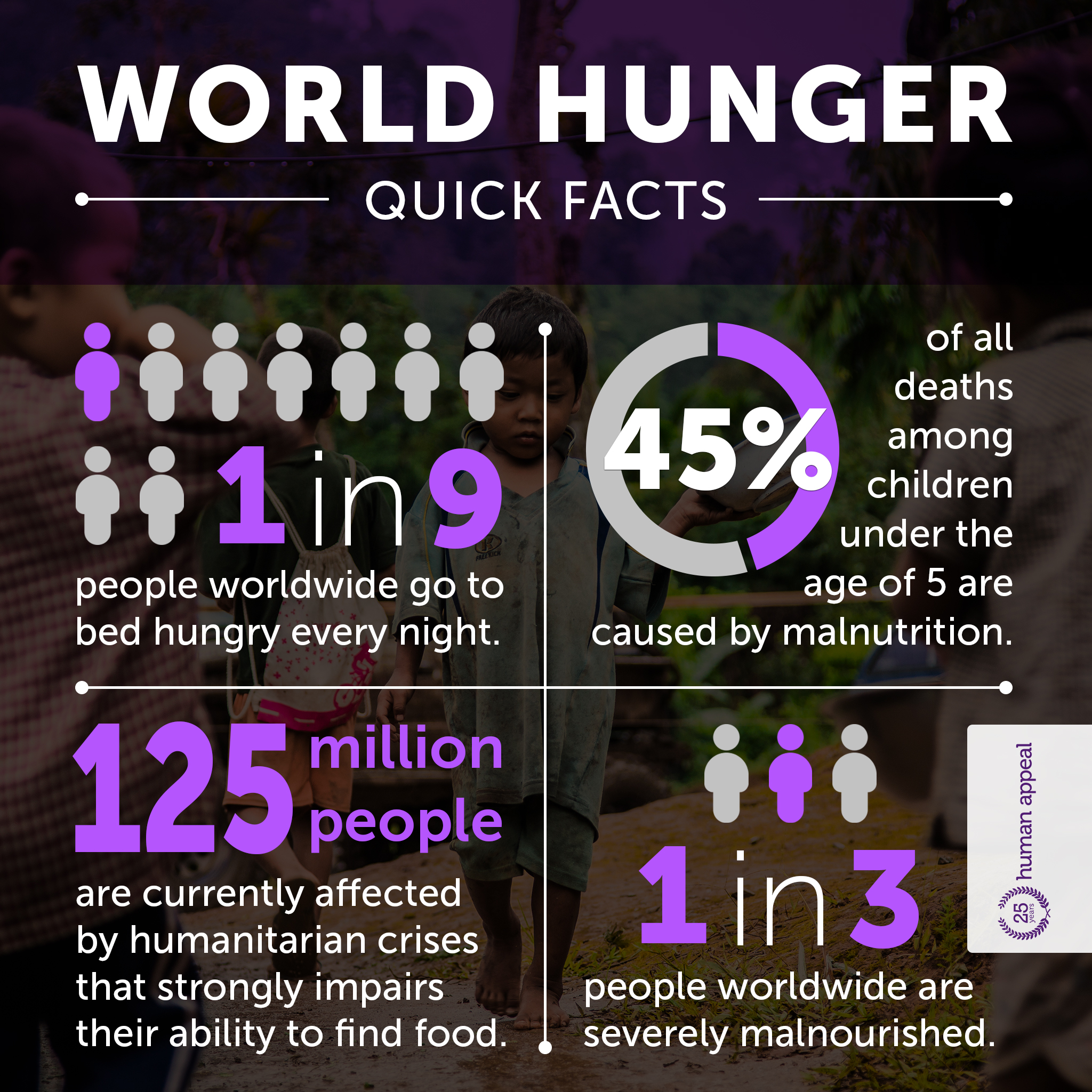Your Final 10 Nights for Gaza – Automate your charity in the blessed last 10 nights of Ramadan.
Schedule your donationsYour Final 10 Nights for Gaza – Automate your charity in the blessed last 10 nights of Ramadan.
Schedule your donationsYour Final 10 Nights for Gaza – Automate your charity in the blessed last 10 nights of Ramadan.
Schedule your donationsYour Final 10 Nights for Gaza – Automate your charity in the blessed last 10 nights of Ramadan.
Schedule your donations9th October 2017
In 2017, we’re in the midst of a new global food crisis, despite our impressive advances in areas of science and technological enterprise. Our planet is capable of producing enough food for everyone, but 1 person in every 9 still goes to bed with an empty stomach each night. That’s 815 million people worldwide who don’t have enough food to eat.
The effects of climate change, conflict, poverty and rising food prices all contribute to widespread global hunger. In Latin America, Asia and Africa, climate change has caused adverse weather events like storms, floods and droughts to become more intense and more frequent.
Countries that are already blighted by high levels of poverty and malnutrition are particularly vulnerable to the heightened natural disasters that climate change causes. The World Food Programme predicts that hunger and malnutrition will increase by 20% by 2050, unless steps are taken to help countries adapt to the effects of climate change.
Rising food prices are a well-documented contributor to the global food crisis. Between 2006 and 2008, the average world price of wheat shot up by 136% and rice increase by 217%. These are staple crops and price rises of this nature have a devastating impact on the billions of people who live in poverty. Poor people will typically spend 80% of their income on buying food, leaving little money left over for education, shelter or healthcare.
A shocking 1 in 3 people across the globe suffer from some form of malnutrition. Malnutrition is caused by eating a diet that doesn’t contain the adequate number of nutrients. People can become both under and over-nourished by taking either not enough food, too much food or too much of the wrong types of food.

Good nutrition is essential. Every person needs to be properly nourished in order to live a healthy, productive and fulfilling life. It has a massive impact upon educational attainment and the strength of a country’s economy. Malnutrition weakens the immune system, increases the risk of contracting diseases and eventually results in death.
According to the World Food Programme, more children die each year as a result of undernutrition than malaria, AIDS and tuberculosis all put together. 45% of all deaths among children under 5 are caused by malnutrition.
The 17 Global Goals for Sustainable Development were embraced by the global community in 2015. They include a pledge to end world hunger, achieve food security, improve nutrition and promote sustainable agriculture by 2030.
At Human Appeal, providing both emergency food support and long term sustainable development solutions are a priority for our organisation. We have a strong presence in Syria, Iraq and Yemen, where conflict has devastated communities and disrupted food production.
Our teams also operate in Palestine, empowering farmers and fishermen by providing them with the tools they need to support their families. With your help, we have responded to the food crisis in East Africa and provided hundreds of starving families in drought-stricken Somalia with the emergency nutrition they need.
Donate to our world food crisis appeals
We can only continue this vital work with your support. Just £100 will buy food, clean water and basic medical care for the people of East Africa. Without you, they would have nothing to eat but leaves. Just £65 will provide a Rohingya family of five who have been forced to flee their home in Myanmar with enough food for a whole month. Without you, they may not survive.
You can save a precious life today.
Donate Now